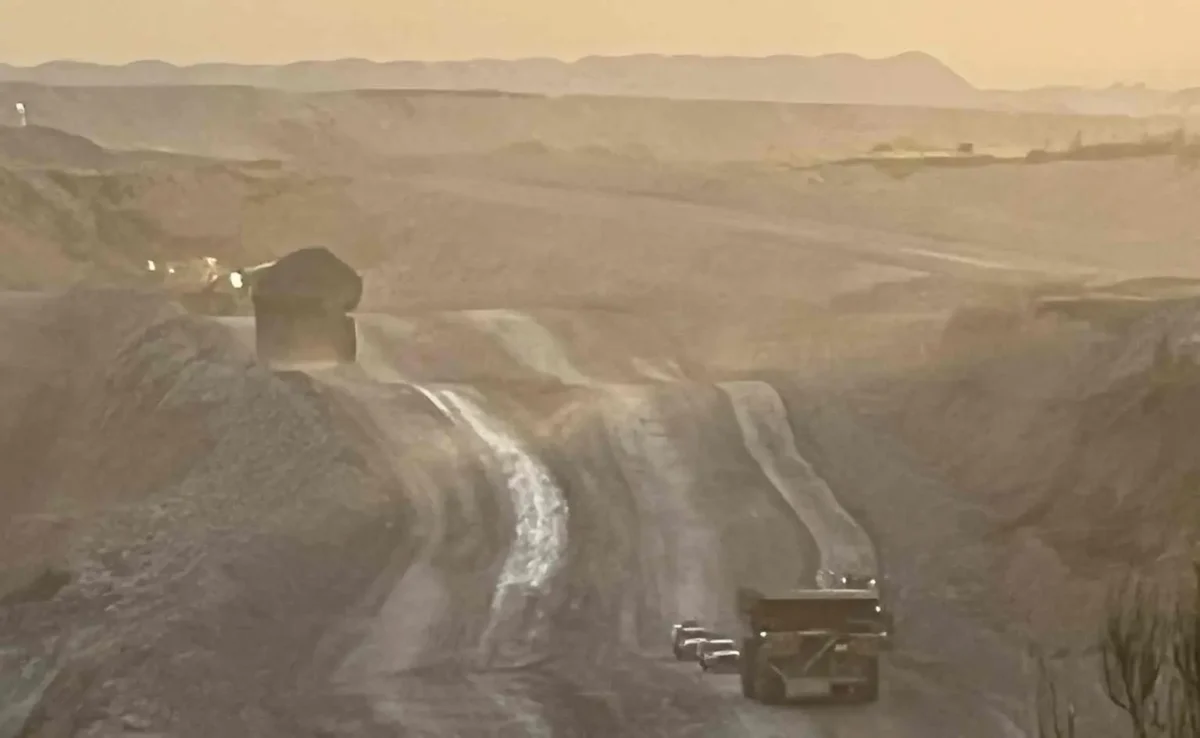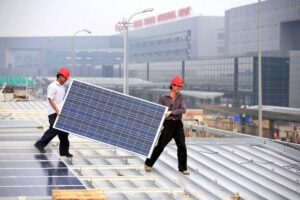The Albanese government and the Coalition opposition are likely combine to block a proposal to enshrine a climate change ‘duty of care’ in legislation that would compel federal ministers to protect young people and future generations from the impacts of climate change.
The Senate’s Environment and Communications committee is currently considering the Climate Change Amendment (Duty of Care and Intergenerational Climate Equity) Bill 2023, which has been authored by independent senator for the ACT, David Pocock.
In what was at times combative senate hearing on Thursday, Labor and Liberal senators sought to pick holes in the legislation, variously complaining that Pocock’s bill could lead to perverse outcomes, or questioning whether climate change presented a pressing health risk to children and future generations.
Pocock tabled the legislation to ‘fill the gap’ in Australia’s environment laws – like the Environmental Protection and Biodiversity Conservation Act – which largely ignores climate change as an issue altogether.
The gap in the legislation has allowed a flurry of coal and gas projects to secure approval from federal environment minister Tanya Plibersek, despite the Albanese government committing to a net zero target.
Speaking to the committee, lawyer Jack McLean of the Human Rights Law Centre said that Pocock’s proposed legislation would be a step towards closing this gap.
“There is currently no place in federal legislation where administrative decision makers, in making significant decisions about what projects will go ahead, projects that will have massive greenhouse gas implications, there is no process for those decision makers to consider the health and well being of children,” McLean said.
“We think that is a big gap in the current regime that needs to be plugged. [The bill] is a way of starting a process to do that.”
Under Pocock’s proposal, a duty would be imposed on any federal minister to actively consider the likely impacts of greenhouse gas emissions on the health and wellbeing of children and young people when exercising their powers – such as deciding whether or not to approve a new fossil fuel project.
The duty would apply to any ‘significant decision’, where an amount of Scope 1, 2 and 3 greenhouse gas emissions greater than 100,000 tonnes or more would be produced over the life of the project, if approved.
Pocock’s proposed legislation is also a response to a court case that had been led by a group of Australian school students, which argued that the federal environment minister owed young people and future generations a ‘duty of care’ to protect them from the impacts of climate change.
While the group of students had initial success – with federal court justice Mordecai Bromberg initially agreeing that the federal environment minister did owe young people a ‘climate’ duty of care – the federal government succeeded in having the ‘duty of care’ overturned in an appeal to the Full Federal Court.
In the appeal judgement, the Full Federal Court pointed to the difficulty in using existing laws to draw sufficiently close linkages between individual government decisions and the global, long-term, impacts of climate change – going as far as stating that establishing a ‘duty of care’ was primarily a core policy question for Parliament.
Anjali Sharma, who was one of the original student plaintiffs in the case, told the committee hearing on Wednesday that enshrining the ‘duty of care’ in legislation would allow the federal government to properly consider future climate impacts while also reducing the potential for costly and lengthly climate litigation.
“As a young person who has had the very niche experience of taking the government to court, its not the easiest thing to do and I don’t think young people want to be spending two years of their lives involved in court processes,” Sharma said.
“We want a duty of care that is most fit for purpose, but we hope that we don’t come out of this process without a duty of care because it has been put in the too hard basket.”
“I know, first hand, the way that climate disaster can take lives and livelihoods, leaving people displaced, families shattered, and communities struggling to rebuild,” Sharma added in an opening statement.
“I know, firsthand, the fear that young people face, as we comprehend the lives that lay ahead of us, characterised by climate disaster of increasing frequency and severity.”
Both Labor and the Coalition oppose the bill, with respective members of the committee – Labor’s Karen Grogan and the Liberal Party’s Hollie Hughes – both being critical of Pocock’s bill.
“We do desperately believe in engaging with children and protecting the future, and because it’s not expressly written in every last piece of legislation that we have in this country does not mean that it is not forefront of the mind of the decision makers,” Labor senator Karen Grogan told the hearing.
“So I’m concerned that this bill will not deliver what people think that it will and I’m particularly worried about administrative decision makers trying to assess what one project will do to young people, while not considering the decades of harm that have already occurred.”
“And I worry that this piece of legislation is not going to deliver what it purports to,” Grogan added.
Representatives from the Department of Climate Change, Energy, the Environment and Water (DCCEEW) also opposed the proposed legislation, arguing that it was more ‘efficient’ to account for greenhouse gas emissions through dedicated policy measures – like the existing Safeguard Mechanism or the Emissions Reduction Fund.
“All of the policies that we have on climate change, including regulatory ones like the Safeguard Mechanism, are all designed to drive Australia’s emissions down, and are part of the recognition that climate change has got significant impacts on children in the future,” deputy secretary of DCCEEW, Jo Evans, told the inquiry.
“While it doesn’t articulate the link to the wellbeing of current and future children, our sense is that really driving down emissions is what the object of [Pocock’s] bill is really trying to do, and what we’re already trying to do covers those issues”
“From a policy perspective, it is more efficient to directly target the thing which you are trying to do, which is to reduce emissions and to do that through the types of policies and measures the government has already put in place,” Evans added.
The senate inquiry is due to deliver its final report on 1 March – which is expected to recommend the rejection of Pocock’s bill.









